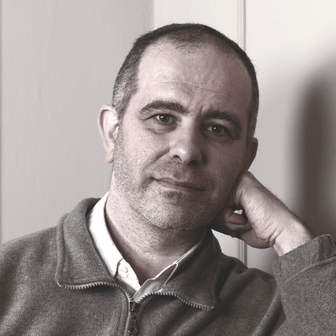Christianity and Religion
The Christianity is the religion founded by Jesus of Nazareth. “Christ” is the Greek translation of the Jewish word “Messiah”, which means “the Anointed”. The first worshippers of Jesus were called “Christians” by the pagans of Antakya, and this name has since remained the same. The religion of Jesus presented itself as the development of the Jewish religion; Jesus was said to be the Messiah expected by the Hebrews, sent by God in order not to abolish but to accomplish the work of Moses and of the prophets. News of the message of Jesus (Gospel means, from the Greek, good news) was such, however, to supplant with its moral and religious principles many of the preceding doctrines, so as to provide a new direction to the course of civilization, than can still be called Christian.
Who is the Christian ?
The Christian is the person who thinks, according to Saint Paul’s teaching, that everything must be reinterpreted in the light of Jesus. From this point of view, the Jewish religion was a slow and progressive preparation for the coming of Jesus, announced by the faith of Abraham and the law of Moses, and of which the prophets had previously delineated its twofold aspect, humility and glory. The Christian religion continues the work of Jesus until the end of the centuries, applying, according to the circumstances, his message. Christianity draws inspiration from Jesus, considering his earthly passage as the greatest event in history, and it follows his teaching that, which while announcing the coming of the kingdom of God, preached the conversion of hearts to the love for those around you, identified with a love for God.
Jesus founds the religion
Unique among the founders of religions, Jesus is at the same time a human being subject to history and a divine and transcendent human being who, as God’s only-begotten son, can assert to exercise sovereignly his powers. After the sacrifice at the cross, having suffered in order to redeem mankind from sin, his message, due to the work of the apostles, and above all to Saint Paul, crossed the borders of the Jewish world and became universal. The force of the new religion consisted of proposing the idea of a continuous drive towards that which is best, whilst being aware of the inadequacy of results from time to time achieved: Christianity replaced the Greek and Roman ideal of the wise man, that of a man eternally striving for unattainable perfection in this world. The virtue for excellence is charity, the act of love towards creatures which in itself constitutes an act of love towards the same Creator, who while in this world will not lavish rewards on good people and punishment to the bad ones. And charity must be exercised towards every man, without distinction of stock or social class; hence came the turmoil of radically new concepts such as condemnation to slavery and the refusal of pleasures of the flesh, to seek instead in everything, even in love, spiritual values.
Judaism
In spite of the hostility of the judaism of Jerusalem and the paganism of imperial Rome, Christianity spread quickly. The cause of its success was, with the restlessness of consciences, the sublimity of its doctrine, that answered to the unsuppressible anguishes of man, revealing to him the meaning of life and death, the happiness of the good and the punishment of sinners, the mystery of divine life and the endless love of God for man. Unlike other religions, Christianity, with the Grace of Jesus, gave the sinner the means to accomplish the duties of justice and love that were imposed on him. Moreover, Christianity, breaking the ancient social order, dissolved all barriers between races, social classes and peoples.
Jesus the workman
From the idea of equality of men before the Father who is in Heaven, radical changes slowly came about. The human beings, until then despised, sometimes oppressed, were the object of predilection in Christianity. The ancient societies had despised manual labour. Christianity reassessed this through the example of Jesus the labourer, who was the principle advocate of the redemption of the world of work. Ancient societies considered education a privilege reserved only for free men; Christianity, whose idea is that every man is educable, adapted the works of learning and education for the élites and the general population. It assumed for a long time, thanks to the private resources which it had at its disposal, the tasks of charity and public education of which the State then gradually took charge.
The universities of the Middle Ages
It was Christianity that founded the universities of the Middle Ages, that is the origin of higher education and scientific research. At the same time, Christianity transformed political society with its own concept of power. “I have not come”, Jesus had said, “to be served, but in order to serve”. From then onwards, authority took the form of a service provided to the community and political power as an office of justice, subject to judgment. The State was no longer conceived as the only source of law. Christianity placed divine law above civil laws the, a supreme paradigm of laws. It placed the “law of people” above nations which for centuries humanised peace and even war; it considered the international community as a large family, in which the luckiest nations must assist the less favoured people and help them to reach their full potential.
Saint Augustine’s work
The social action of Christianity has been accompanied by an intellectual and cultural action. The mysteries of Christ’s teachings exceed human reasoning without however contradicting it; this reasoning enucleates and penetrates them. By spreading the Jewish idea of a God creator, Christianity taught that the world is ordered and intelligible: unlike the ancient people, for whom nature was animated by the gods and the man closed within himself, Christians think that nature is finite, penetrable through intelligence, while man aims to the infinite, and he is the temple of God. This changes the perspectives of physical and human sciences. The former become possible because all magic is eliminated; the latter are conceived as products of man himself, in whom Truth lives. The morale will no longer only be the art of life but the science of the Infinite, the art of harmonising with it and if necessary also with sacrifice. Although Christianity has not been the bearer of a new philosophy, it has all the same pronounced some affirmations that have been useful as a guide to philosophical thought such as those relating to the distinction of the spirit from the body, to the reality of God and to freedom. It was Christianity which, benefiting from Saint Augustine’s work, increased the knowledge of the inner world, reduced to a dialog between two beings, unique and supreme, the self and his Creator. Wisdom consists precisely in behaving as if there were no God and self, through the mediation of Christ, priest and saviour. Through this revelation of the inner self, of worldliness and historicity, Christianity acted in the depth of conscience, renewing feelings, stimulating new ones (such as hope, loyalty, zeal, repentance, love, generous humility), giving new dimensions to all forms of expression, particularly to the artistic ones.
Initiation into divine life
Poetry, theatre and novels have taken as subjects the spirit of man. Architecture acquired new religious and social forms. Painting tended to show the interiority of external realities, thus lending a spiritual value even to the landscape. Christianity generated a new form of music, as a spiritual art par excellence as commentary to an idea and not only as a revelation of the states of mind. The most striking characters of civilization are found in such advancements, that is the Christian civilization. But the main purpose of Christianity is an initiation into divine life that takes its movements from the Earth, in other words an appeal to holiness, meant as an imitation of Christ. But it is true that, if for every follower of the new religion, this is the essential purpose, Christianity has reached its highest point of truth with the mystics and saints, each of whom reproduces an aspect of Christ in an unforeseeable and original way.
Christianity and its reforms
Certainly Christianity in its historical incarnations shows some gaps, miseries, shadows, all the more evident the higher up it looks. The greatest homage or tribute paid to such miseries has been the mixture of the spirit of Christ with the spirit of the world, the confusion of the faith with fallacious beliefs (as at the time of Galileo’s condemnation), the degradation of spiritual inspiration in earthly spheres, of mysticism in politics. From here arose an incessant reform of Christianity thanks to its pastors, its doctors, its saints, for a return to the spirit of its founder. Nowadays this reformistic drive manifests itself in all Christian confessions given that the foremost wound of Christianity was and remains the division among Christians, who have interpreted in a different way the message of Christ. There are several sources at the origin of these divisions in the different historical circumstances: refusal of the pontifical supremacy, when Michele Cerulario, patriarch of Constantinople, broke with the papacy in 1054, detaching the Oriental Churches from the Church of Rome, said orthodoxies; re-examination of the Christian doctrine, which was taught in Rome, thanks to the protestant Reform of the XVI century, initiator of a Christianity beyond Roman Catholicism.
Orthodoxy in the slavonic countries
In the XX century, Orthodoxy is still the dominant religion of the Slavonic countries, while reformed Christianity, in its different forms, has imposed itself in the Anglo-Saxon countries of Europe and in North America, in northern Germany and in the Scandinavian countries. However, nowadays a movement of re-unification among the separate confessions has become apparent. Catholicism, even sustaining that it is the only authentic form of Christianity that answers to the mission of Jesus and in which all the Churches must at the end assemble and reunite, has provided an official character to this new orientation within the sphere of the second Vatican Council. Beyond Catholicism, ecumenism gathers all the Churches united in faith in Christ Son of God the Saviour.

Ciao,
mi chiamo Stefano.
Piemonte Sacro è la mia passione dal 2001.
AIUTA il progetto Piemonte Sacro a crescere
DONA SOLO 2 euro! Te ne sarò GRATO .




